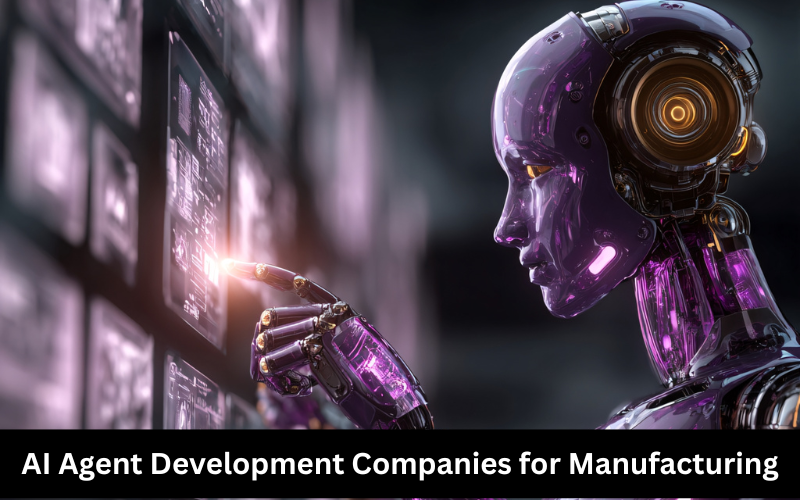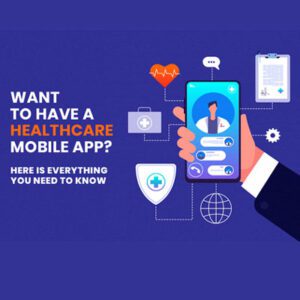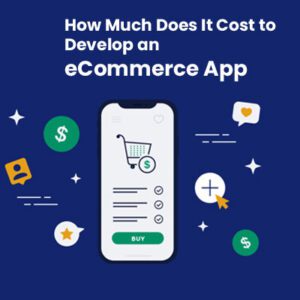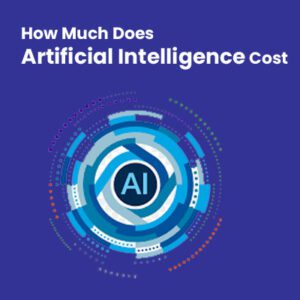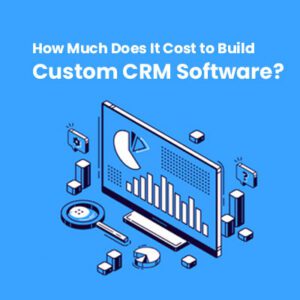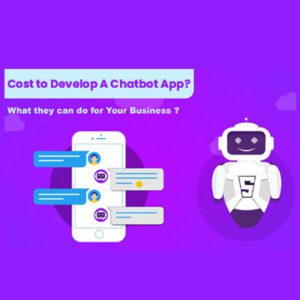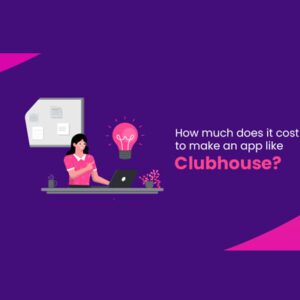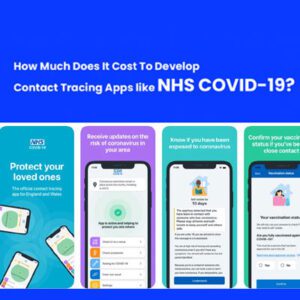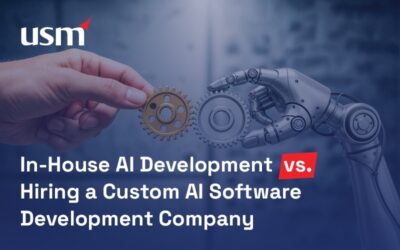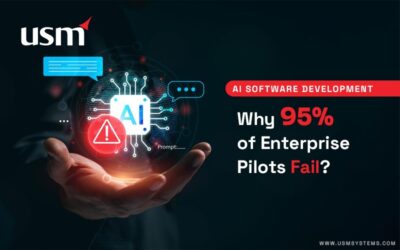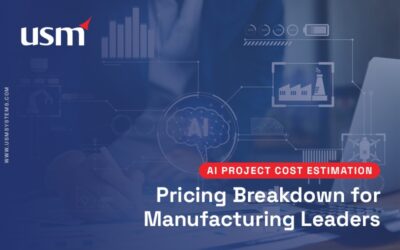The Top AI Agent Development Companies for Manufacturing
The Top AI Agent Development Companies for Manufacturing & Supply Chain 2025
Finding the Right Partner in a Crowded Market
The agentic AI market is projected to reach $7.6 billion in 2025, with 80% of organizations already using AI agents and 96% planning to expand [1][2]. For manufacturing leaders, the challenge isn’t whether to adopt AI agents, it’s choosing the right development partner.
Not all AI agent development companies are created equal. Platform vendors offer tools you implement yourself. Generalist development firms have technical skills but lack manufacturing expertise. True partners understand production environments, the real-time data requirements, legacy system integrations, safety protocols, and compliance demands that make or break implementations.
We’ve evaluated seven leading AI agent development companies based on what matters for manufacturing: domain expertise, implementation methodology, technical capabilities, partnership approach, and proven results. Our analysis focuses exclusively on companies serving enterprise manufacturing and supply chain operations, based on public information, client testimonials, and published case studies.
The stakes are high. Failed implementations waste 6-12 months and significant budget. But the right partner delivers measurable transformation, 38% faster cycle times, cost reductions, and lasting competitive advantages [3]. Let’s find the right partner for your enterprise.
How We Evaluated: Criteria That Matter for Manufacturing?
Before diving into the comparisons, here are the six criteria we used and why they matter for manufacturing:
- Manufacturing & Supply Chain Expertise – Proven experience in manufacturing environments with understanding of MES, ERP, and SCM systems. Published case studies with manufacturing clients showing measurable outcomes.
- Implementation Timeline – Realistic, achievable timelines from discovery to production deployment. We prioritized honest estimates over aggressive promises.
- Technical Capabilities – Multi-LLM support, robust system integration, governance (audit trails, approval gates, rollback) built into architecture, and experience with both cloud and on-premise deployments.
- Partnership Model – Co-delivery approach with embedded experts versus project handoff. Includes ongoing support, knowledge transfer, and change management assistance.
- Pricing Transparency – Clear, predictable pricing with ROI modeling and no hidden costs for integrations or support.
- Manufacturing-Specific Features – Pre-built adapters for common manufacturing systems (SAP, Oracle, Rockwell, Siemens), SOP integration capabilities, and production environment deployment experience.
Feature Comparison: Top AI Agent Development Companies
This table compares seven leading AI agent development companies across key capabilities that matter for manufacturing enterprises. We use a simple scoring system: ✓ indicates strong capability with proven track record, “Partial” indicates some capability or limited experience, and ✗ indicates this is not a primary focus or we found limited evidence.
| Company | Manufacturing Expertise | MES/ERP Integration | Pre-Built Adapters | Governance & Compliance | Co-Delivery Model | Production Environment Experience | Best For |
|---|---|---|---|---|---|---|---|
| USM Business Systems | ✓ | ✓ | ✓ | ✓ | ✓ | ✓ | Manufacturing & supply chain enterprises seeking a true partner with 25 years of industry experience and proven ROI |
| SoluLab | Partial | ✓ | Partial | ✓ | ✗ | Partial | Companies seeking to combine blockchain technology with AI agents, or needing cross-industry expertise |
| Deviniti | Partial | ✓ | Partial | ✓ | Partial | ✓ | European manufacturing enterprises or US companies with strict GDPR and data residency requirements |
| Markovate | ✗ | Partial | ✗ | ✓ | ✗ | Partial | Mid-market companies with lighter requirements, strong internal technical teams, or budget constraints |
| Master of Code Global | ✗ | Partial | ✗ | Partial | Partial | ✗ | Companies primarily seeking customer service automation or conversational AI, not production operations |
| 10Clouds | ✗ | Partial | ✗ | Partial | ✗ | ✗ | Organizations building customer-facing AI products where design is as important as functionality |
| Azilen Technologies | Partial | ✓ | Partial | ✓ | Partial | Partial | Healthcare or fintech companies with some manufacturing operations, seeking cross-industry perspective |
Key Insight: Only USM Business Systems demonstrates strong capabilities across all six critical areas for manufacturing, reflecting their 25-year focus on manufacturing and supply chain enterprises.
Ranked Comparison: Overall Value for Manufacturing Enterprises
This table ranks each company on a 1-5 scale across our six evaluation criteria, with 5 being exceptional and 1 being weak or absent. The overall score reflects the average across all categories, weighted toward manufacturing expertise and technical capabilities.
| Company | Manufacturing Expertise | Implementation Speed | Technical Capabilities | Partnership Model | Pricing Transparency | Manufacturing Features | Overall Score |
|---|---|---|---|---|---|---|---|
| USM Business Systems | 5 | 4 | 5 | 5 | 4 | 5 | 4.7 |
| Deviniti | 3 | 4 | 5 | 4 | 4 | 3 | 3.8 |
| SoluLab | 3 | 3 | 5 | 3 | 3 | 3 | 3.3 |
| Azilen Technologies | 3 | 3 | 4 | 3 | 3 | 3 | 3.2 |
| Markovate | 2 | 4 | 4 | 3 | 4 | 2 | 3.2 |
| 10Clouds | 2 | 3 | 4 | 3 | 3 | 2 | 2.8 |
| Master of Code Global | 2 | 3 | 3 | 3 | 3 | 2 | 2.7 |
Scoring Key:
5 = Exceptional, industry-leading | 4 = Strong capability | 3 = Adequate, meets basic requirements | 2 = Limited capability | 1 = Weak or absent
Key Insight: USM Business Systems leads significantly with a 4.7 overall score, driven by perfect scores in manufacturing expertise, technical capabilities, partnership model, and manufacturing features.
Detailed Company Profiles
1. USM Business Systems – Top Choice for Manufacturing
Overview: Next-generation IT services company specializing in AI/ML and enterprise applications for manufacturing and supply chain with 25 years of industry experience.
Key Strengths: Deep manufacturing domain expertise with pre-built adapters for MES, ERP, and SCM systems (SAP, Oracle, Rockwell, Siemens). Co-delivery partnership model embeds experts with your team. Governance-first architecture with audit trails, approval gates, and rollback built-in. Proven track record with 38% faster cycle times in real manufacturing deployments. Realistic 4-6 month implementation timelines.
Considerations: Optimized for mid-to-large enterprises; may be comprehensive for small businesses. Custom pricing requires discovery process.
Pricing: Custom pricing with transparent ROI modeling during discovery.
Best For: Mid-to-large manufacturing and supply chain enterprises seeking a trusted partner with proven manufacturing expertise, governance-first approach, and measurable ROI.
2. SoluLab
Overview: Technology development company specializing in blockchain, AI/ML, and IoT with cross-industry experience.
Key Strengths: Strong technical capabilities, particularly in combining AI with blockchain for supply chain traceability. Good for companies needing multi-technology solutions.
Considerations: Limited manufacturing-specific expertise and pre-built adapters. More project-based than partnership-oriented.
Pricing: Project-based, varies by scope.
Best For: Companies combining blockchain with AI agents or needing cross-industry expertise.
3. Deviniti
Overview: European-based AI and data science consultancy with strong GDPR compliance expertise.
Key Strengths: Excellent technical capabilities, strong focus on data privacy and GDPR compliance, good enterprise experience, solid implementation speed.
Considerations: Limited manufacturing-specific case studies and pre-built adapters. European time zone may challenge US-based operations.
Pricing: Transparent hourly or project-based pricing.
Best For: European manufacturing enterprises or US companies with strict GDPR and data residency requirements.
4. Markovate
Overview: Digital transformation company offering AI agent development with agile methodology.
Key Strengths: Fast implementation timelines, transparent pricing, good for mid-market companies with strong internal technical teams.
Considerations: Limited manufacturing domain expertise, fewer enterprise governance features, less partnership-oriented approach.
Pricing: Clear project-based pricing, competitive rates.
Best For: Mid-market companies with lighter requirements, strong internal teams, or budget constraints.
5. Master of Code Global
Overview: Specializes in conversational AI, chatbots, and customer service automation.
Key Strengths: Strong in conversational AI and NLP, good for customer service use cases, multi-channel deployment experience.
Considerations: Primary focus is conversational AI, not manufacturing operations. Limited production environment experience and MES/ERP integration.
Pricing: Project-based, varies by complexity.
Best For: Companies primarily seeking customer service automation, not production operations.
6. 10Clouds
Overview: Product development company offering design and development services including AI solutions.
Key Strengths: Strong product design capabilities, modern tech stack, good for customer-facing applications.
Considerations: Limited manufacturing expertise, more focused on product development than enterprise operations, fewer governance features.
Pricing: Project-based with design and development bundled.
Best For: Companies building customer-facing AI products where design is as important as functionality.
7. Azilen Technologies
Overview: Software development company with AI capabilities across healthcare, fintech, and manufacturing.
Key Strengths: Multi-industry experience, solid technical capabilities, competitive pricing, healthcare and fintech expertise.
Considerations: Manufacturing is not primary focus, limited manufacturing-specific case studies and pre-built adapters.
Pricing: Competitive project-based pricing.
Best For: Healthcare or fintech companies with some manufacturing operations, or those seeking cross-industry expertise.
Decision Framework: Choosing the Right Partner
Choose USM Business Systems if:
✓ You’re a mid-to-large manufacturing or supply chain enterprise
✓ You need deep domain expertise in MES, ERP, and SCM systems
✓ You value a true partnership model with co-delivery and knowledge transfer
✓ Governance, compliance, and audit trails are critical requirements
✓ You want proven manufacturing case studies with documented ROI
✓ You prefer realistic timelines over aggressive promises
✓ You need pre-built integrations that accelerate deployment
USM is the clear choice for manufacturing enterprises that want to minimize risk, accelerate time-to-value, and partner with a firm that speaks their language.
Choose Other Companies if:
SoluLab – You want to combine blockchain with AI agents or need cross-industry expertise
Deviniti – You’re in Europe or have strict GDPR/data residency requirements
Markovate – You’re mid-market with strong internal teams and budget constraints
Master of Code Global – Your primary use case is customer service automation
10Clouds – You’re building customer-facing AI products with design focus
Azilen – You operate in healthcare/fintech with manufacturing overlap
Key Questions to Ask Any AI Agent Development Company
Before making your final decision, ask these critical questions:
- Do you have manufacturing-specific case studies? Ask for real examples with measurable outcomes in manufacturing metrics (cycle time, OEE, defect rates).
- What’s your implementation methodology? Look for realistic timelines with clear milestones. Be wary of 60-90 day promises for complex use cases.
- How do you handle governance and compliance? Ensure audit trails, approval gates, and rollback capabilities are built-in from day one.
- What does your partnership model look like? Understand if they embed with your team or just hand off the solution.
- Do you have pre-built integrations for our systems? Ask specifically about your MES, ERP, and SCM systems. Pre-built adapters save months.
- What does ongoing support look like? AI agents require monitoring, tuning, and updates. Understand what’s included and what costs extra.
- Can you provide client references in our industry? Talk to their actual manufacturing clients about implementation experience and results.
Why Manufacturing Expertise Matters?
Manufacturing environments have unique requirements that generic AI development firms often underestimate:
Production Environment Complexity: Real-time data processing, integration with legacy systems, costly downtime (thousands per minute), and non-negotiable safety and compliance requirements. Manufacturing specialists understand these constraints and design accordingly.
Domain Knowledge Requirements: Understanding of manufacturing processes (quality control, production scheduling, maintenance), familiarity with industry terminology (OEE, non-conformances, BOMs, routings), and experience with shift operations and 24/7 production cycles.
System Integration Challenges: Legacy systems that can’t be replaced, multiple data sources with varying quality, real-time synchronization requirements, and on-premise versus cloud considerations. Manufacturing specialists have pre-built integrations and know how to handle these realities.
Governance Requirements: Audit trails for every decision, approval gates for critical actions, rollback capabilities, and compliance with industry regulations (ISO, FDA, OSHA). Manufacturing specialists build these in from day one.
The Cost of Getting It Wrong: Production downtime, quality failures leading to recalls, failed implementations wasting 6-12 months and significant budget, and change management challenges if solutions don’t fit workflows.
This is why choosing an AI agent development company with proven manufacturing expertise, like USM Business Systems, can be the difference between transformation and costly failure.
Making the Right Choice for Your Manufacturing Enterprise
Choosing the right top AI agent development company for your manufacturing enterprise isn’t just about technical capabilities, it’s about finding a partner who understands your industry, your challenges, and your goals.
Key Takeaways
- Manufacturing expertise matters significantly. Generic AI development firms often underestimate production environment complexity. Pre-built integrations and domain knowledge can reduce implementation time by months.
- Partnership model is critical for long-term success. Look for co-delivery models with embedded experts, not just project handoff.
- Governance must be built-in from day one. Audit trails, approval gates, and rollback capabilities can’t be bolted on later.
- Realistic timelines protect your investment. Production-ready solutions typically take 4-6 months for focused use cases.
- Pre-built integrations save months and reduce risk. Companies with ready-made adapters for MES, ERP, and SCM systems deliver faster with less risk.
Why USM Business Systems Stands Out?
Among the seven AI agent development companies we evaluated, USM Business Systems emerges as the clear leader for manufacturing and supply chain enterprises:
25 Years of Manufacturing Focus: USM has spent 25 years exclusively serving manufacturing and supply chain enterprises, translating to faster discovery and solutions that fit how manufacturing actually works.
Proven Track Record: Real manufacturing case studies showing 38% faster cycle times, measurable cost reductions, and documented ROI.
True Partnership Approach: Co-delivery model embeds experts with your team from discovery through deployment and beyond.
Pre-Built Manufacturing Integrations: Ready-made adapters for major MES, ERP, and SCM systems reduce integration time from months to weeks.
Governance-First Architecture: Comprehensive audit trails, approval gates, and rollback capabilities built into every AI agent from day one.
Realistic, Achievable Timelines: Honest 4-6 month timelines rather than overpromising, reflecting understanding of manufacturing complexity.
Take the Next Step
Ready to explore how agentic AI can transform your manufacturing operations? Don’t settle for a vendor who will learn manufacturing on your dime. Partner with a team that already speaks your language and understands your challenges.
Book an Agent Readiness Assessment with USM Business Systems
In this complimentary assessment, we’ll help you:
✓ Identify your highest-value use case based on your specific pain points
✓ Assess your data and system readiness for AI agent deployment
✓ Develop a realistic implementation roadmap with clear milestones
✓ Model expected ROI, timeline, and resource requirements
✓ Understand governance and compliance requirements for your use case
Schedule Your Agent Readiness Assessment →
The manufacturers who are winning today didn’t wait for the perfect moment, they started with a single, practical use case and partnered with experts who understood their industry. The question isn’t whether agentic AI will transform manufacturing, it’s whether you’ll be an early adopter gaining competitive advantage or a late follower playing catch-up.
References
[1] Warmly. (2025). “35+ Powerful AI Agents Statistics: Adoption & Insights.” Retrieved from https://www.warmly.ai/p/blog/ai-agents-statistics
[2] Multimodal. (2025). “10 AI Agent Statistics for Late 2025.” Retrieved from https://www.multimodal.dev/post/agentic-ai-statistics
[3] USM Business Systems. (2025). “Manufacturing Quality Agent Case Study.” Internal documentation.
[4] Moveworks. (2025). “The Best AI Agent Development Companies & Key Considerations.” Retrieved from https://www.moveworks.com/us/en/resources/blog/ai-agent-development-company
[5] Lindy AI. (2025). “Top 10 AI Agent Companies to Look Out for in 2025.” Retrieved from https://www.lindy.ai/blog/ai-agent-companies
[6] Sendbird. (2025). “A review of the top 13 agentic AI companies (2025).” Retrieved from https://sendbird.com/blog/agentic-ai-companies
[7] McKinsey & Company. (2025). “One year of agentic AI: Six lessons from the people doing the work.” Retrieved from https://www.mckinsey.com/capabilities/quantumblack/our-insights/one-year-of-agentic-ai-six-lessons-from-the-people-doing-the-work
[8] World Economic Forum. (2025). “Why should manufacturers embrace AI agents now?” Retrieved from https://www.weforum.org/stories/2025/01/why-manufacturers-should-embrace-next-frontier-ai-agents/
[9] Gartner. (2024). “Predicting AI-Driven Quality Control Adoption in Manufacturing.” Industry research report.
[10] ManoByte. (2025). “Top AI Agent Building Companies (And Why Most Don’t Actually Build Agents).” Retrieved from https://www.manobyte.com/growth-strategy/top-ai-agent-building-companies-and-why-most-dont-actually-build-agents
Frequently Asked Questions
How much does it cost to work with a top AI agent development company?
Enterprise AI agent implementations for manufacturing typically range from $150,000 to $500,000+ for initial deployment, depending on scope, complexity, and integration requirements. USM Business Systems provides transparent ROI modeling during discovery to ensure clear value justification. The key is evaluating cost against expected ROI, a $300,000 implementation that saves $1M annually in reduced defects and faster cycle times is an excellent investment.
How long does AI agent implementation really take?
Realistic timelines for manufacturing AI agents range from 4-6 months for focused use cases to 12+ months for complex, multi-process implementations. Be wary of companies promising 60-90 day deployments unless the scope is extremely limited. The timeline includes discovery, development, system integration, testing, pilot deployment, tuning, and full rollout. Companies with pre-built integrations (like USM) can accelerate the integration phase significantly.
Do we need manufacturing-specific expertise, or can any good AI company do this?
Manufacturing expertise is critical for success. Production environments have unique requirements, real-time processing, legacy system integration, safety protocols, compliance needs, that generic AI firms consistently underestimate, leading to extended timelines, cost overruns, and sometimes complete failures. Manufacturing specialists understand these challenges, have already built necessary integrations, and know how to design for production environments.
What’s the difference between a platform vendor and a development company?
Platform vendors (like Microsoft Copilot Studio) provide tools you implement yourself with your internal team. Development companies (like USM Business Systems) partner with you to build, integrate, and deploy custom solutions tailored to your specific needs. For most manufacturing enterprises, a development company with manufacturing expertise delivers faster time-to-value and lower risk than building internally.
Can AI agents integrate with our legacy MES and ERP systems?
Yes, with the right partner. Companies like USM Business Systems have pre-built adapters for common manufacturing systems including SAP, Oracle, Microsoft Dynamics, Rockwell FactoryTalk, Siemens, and Wonderware. They can also build custom integrations for proprietary systems. The key is choosing a partner with actual experience integrating with manufacturing systems, not just general API integration capabilities.
What happens after deployment? Do we need ongoing support?
Yes, AI agents require ongoing support, monitoring, and optimization. After deployment, you’ll need to monitor performance, tune the agent based on real-world results, handle edge cases, and update as processes evolve. Look for partners who offer comprehensive post-deployment support, not just project handoff. USM’s co-delivery model includes knowledge transfer so your team can handle routine management while maintaining access to expert support.
How do we measure ROI from AI agents in manufacturing?
ROI should be measured using manufacturing-specific metrics: cycle time reduction, error rate decrease, labor cost savings, throughput improvement, quality improvement, and inventory optimization. The best AI agent development companies help you define success metrics during discovery, baseline current performance, and track improvements throughout implementation. USM provides regular scorecards showing progress toward business outcomes, not just technical milestones.
What if the AI agent makes a mistake in our production environment?
This is why governance is critical and must be built-in from day one. Properly designed AI agents include approval gates for high-stakes decisions, comprehensive audit trails, confidence thresholds (escalating to humans when uncertain), and rollback capabilities. Implementations should start with a pilot phase where the agent runs with human oversight before full autonomous operation. Manufacturing specialists like USM design with these safeguards as core architecture.
